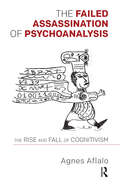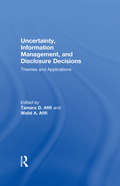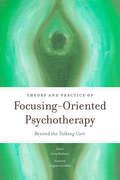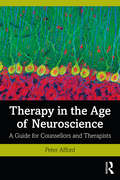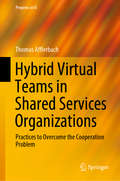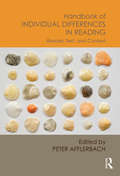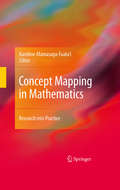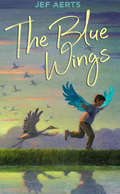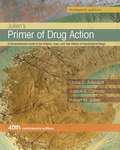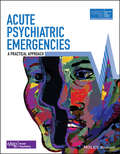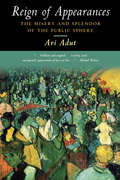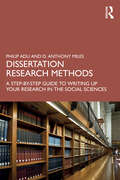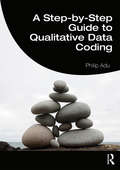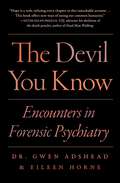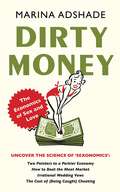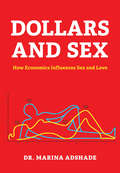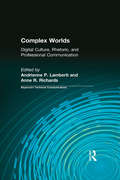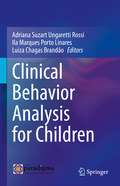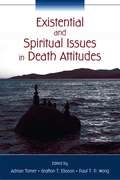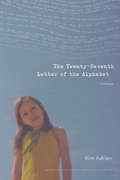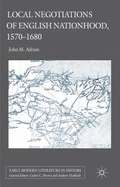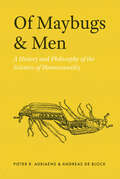- Table View
- List View
The Failed Assassination of Psychoanalysis: The Rise and Fall of Cognitivism
by Agnes AflaloIt can happen that a law incurs the wrath of the very people it set out to protect. This is what happened in France at the end of 2003 with the Accoyer Amendment, a Bill that intended to regulate the exercise of psychotherapies even at the cost of the disappearance of psychoanalysis itself. The public that this law was supposed to protect thus ran the risk of finding themselves stripped of certain freedoms that democracy usually guarantees. How had it become possible to reach such a point? This is what this book sets out to examine. Evaluation and cognitive-behavioural scientism, which have been progressively infiltrating different forms of knowledge with destructive effect, undoubtedly played a major role. And then, the International Psychoanalytical Association, despite having been founded by Freud to protect his invention, started to endorse the forced cognitivisation of psychoanalysis. Meanwhile, psychiatry slid back into its nineteenth century hygienic obscurantism and its new recruit, epidemiology, began playing host to racialist discourses.
Uncertainty, Information Management, and Disclosure Decisions: Theories and Applications
by Walid Afifi Tamara AfifiThis volume integrates scholarly work on disclosure and uncertainty with the most up-to-date, cutting edge research, theories, and applications. Uncertainty is an ever-present part of human relationships, and the ways in which people reduce and/or manage uncertainty involves regulating their communication with others through revealing and concealing information. This collection is devoted to collating knowledge in these areas, advancing theory and presenting work that is socially meaningful. This work includes contributions from renowned scholars in interpersonal uncertainty and information regulation, focusing on processes that bridge boundaries within and across disciplines, while maintaining emphasis on interpersonal contexts. Disciplines represented here include interpersonal, family, and health communication, as well as relational and social psychology. Key features of the volume include: comprehensive coverage integrating the latest research on disclosure, information seeking, and uncertainty, a highly theoretical content, socially meaningful in nature (applied to real-world contexts), an interdisciplinary approach that crosses sub-fields within communication. This volume is a unique and timely resource for advanced study in interpersonal, health, or family communication. With its emphasis on theory, the book is an excellent resource for graduate courses addressing theory and/or theory construction, and it will also appeal to scholars interested in applied research.
Theory and Practice of Focusing-Oriented Psychotherapy: Beyond the Talking Cure
by Peter Afford Bala Jaison Zack Boukydis Greg Madison Annmarie Early Helene Brenner Judy Moore Kevin Krycka Larry Letich Atsmaout Perlstein Campbell Purton Rob Parker Anna Karali Laury Rappaport John Amodeo Christiane Geiser Sergio Lara Pavlos Zarogiannis Akira Ikemi Lynn Preston Eugene GendlinThis comprehensive introduction to Focusing-Oriented Psychotherapy lays out the background and fundamentals of the approach covering theory and practice. Gendlin, after many articles on Focusing-oriented psychotherapy, finally published the text Focusing-Oriented Psychotherapy in 1996, making these ideas more widely available to the world. With contributions from some of the world's most influential contemporary Focusing-Oriented Psychotherapists and a foreword by Gendlin, this book provides a long overdue survey of this growing field. It explores how Focusing has been integrated with other theoretical orientations such as attachment theory, solution focused therapy, relational psychoanalysis, and existential therapy. Contemporary issues in Focusing-Oriented Psychotherapy are also covered, such as its suitability across cultures, and how it relates to the latest findings in the field of neuroscience. The book is essential reading for all practicing therapists and counselors, as well as trainee therapists, particularly those who want to explore the potential of experiential dimensions in their therapy and coaching practice. Jessica Kingsley Publishers also publishes a companion volume, Emerging Practice in Focusing-Oriented Psychotherapy: Innovative Theory and Applications, edited by Greg Madison [9781849053716].
Therapy in the Age of Neuroscience: A Guide for Counsellors and Therapists
by Peter AffordTherapy in the Age of Neuroscience: A Guide for Counsellors and Therapists is an essential guide to key areas of neuroscience that inform the theory underlying psychotherapy, and how they can be applied to practice. Laying out the science clearly and accessibly, it outlines what therapists need to know about the human nervous system in order to be able to engage with the subject. Chapters cover the neuroscience underlying key aspects of therapy such as relationships, emotion, anxiety, trauma and dissociation, the mind-body connection, and the processes which enable therapists to engage deeper aspects of mind and psyche. This book responds to the need for counsellors and therapists to have an accessible and comprehensive guide to how contemporary neuroscience views mind and body. Therapy in the Age of Neuroscience will appeal to psychotherapists, counsellors and other mental health professionals who wish to learn more about how to integrate neuroscience into their work.
Hybrid Virtual Teams in Shared Services Organizations: Practices to Overcome the Cooperation Problem (Progress in IS)
by Thomas AfflerbachThis book focuses on virtual teams, which are fraught with cooperation problems. It offers novel insights into how team members experience and overcome these problems by empirically studying hybrid virtual teams in Shared Services Organizations. It firstly enhances the reader’s understanding of contextual challenges relating to cooperation and shows how members of such teams experience faultlines through distance, disconnection through reliance on communication technology and discontinuity through temporality of team composition. Secondly, it explores how they use 22 practices to overcome the cooperation problem, which can be categorized as strategies of identity constructing, trusting and virtual peer monitoring. Lastly, the study analyzes the role of technology, demonstrating that state-of-the-art media can facilitate, but not ensure the use of these strategies and practices. As such, the book has implications for both researchers and practitioners.
Handbook of Individual Differences in Reading: Reader, Text, and Context
by Peter AfflerbachThe central unifying theme of this state-of-the-art contribution to research on literacy is its rethinking and reconceptualization of individual differences in reading. Previous research, focused on cognitive components of reading, signaled the need for ongoing work to identify relevant individual differences in reading, to determine the relationship(s) of individual differences to reading development, and to account for interactions among individual differences. Addressing developments in each of these areas, this volume also describes affective individual differences, and the environments in which individual differences in reading may emerge, operate, interact, and change. The scant comprehensive accounting of individual differences in reading is reflected in the nature of reading instruction programs today, the outcomes that are expected from successful teaching and learning, and the manner in which reading development is assessed. An important contribution of this volume is to provide prima facie evidence of the benefits of broad conceptualization of the ways in which readers differ. The Handbook of Individual Differences in Reading moves the field forward by encompassing cognitive, non-cognitive, contextual, and methodological concerns. Its breadth of coverage serves as both a useful summary of the current state of knowledge and a guide for future work in this area.
Concept Mapping in Mathematics: Research into Practice
by Karoline Afamasaga-Fuata'IConcept Mapping in Mathematics: Research into Practice is the first comprehensive book on concept mapping in mathematics. It provides the reader with an understanding of how the meta-cognitive tool, namely, hierarchical concept maps, and the process of concept mapping can be used innovatively and strategically to improve planning, teaching, learning, and assessment at different educational levels. This collection of research articles examines the usefulness of concept maps in the educational setting, with applications and examples ranging from primary grade classrooms through secondary mathematics to pre-service teacher education, undergraduate mathematics and post-graduate mathematics education. A second meta-cognitive tool, called vee diagrams, is also critically examined by two authors, particularly its value in improving mathematical problem solving. Thematically, the book flows from a historical development overview of concept mapping in the sciences to applications of concept mapping in mathematics by teachers and pre-service teachers as a means of analyzing mathematics topics, planning for instruction and designing assessment tasks including applications by school and university students as learning and review tools. This book provides case studies and resources that have been field tested with school and university students alike. The findings presented have implications for enriching mathematics learning and making problem solving more accessible and meaningful for students. The theoretical underpinnings of concept mapping and of the studies in the book include Ausubel's cognitive theory of meaningful learning, constructivist and Vygotskian psychology to name a few. There is evidence particularly from international studies such as PISA and TIMSS and mathematics education research, which suggest that students' mathematical literacy and problem solving skills can be enhanced through students collaborating and interacting as they work, discuss and communicate mathematically. This book proposes the meta-cognitive strategy of concept mapping as one viable means of promoting, communicating and explicating students' mathematical thinking and reasoning publicly in a social setting (e.g., mathematics classrooms) as they engage in mathematical dialogues and discussions. Concept Mapping in Mathematics: Research into Practice is of interest to researchers, graduate students, teacher educators and professionals in mathematics education.
Blue Wings
by Jef AertsTwo brothers bound together by affection and responsibility. Jadran is five years older than Josh and huge enough to be nicknamed Giant. Josh is younger, and smaller; but his sweet and stubborn brother thinks in a way that would be more typical of a small child. They are both dealing with changes to their newly blended, Muslim family. So Josh looks after Jadran and they both adjust. When the brothers find an injured young crane, Jadran wants to bring it back to their small apartment and teach it to fly at any cost. And it turns out the cost is high.Intensely moving without ever slipping into sentimentality, The Blue Wings is a warm, love-filled story about fragility, strength, and brotherhood, in all its complications.
Julien's Primer of Drug Action
by Claire D. Advokat Robert M. Julien Joseph E. ComatyIn its 40th anniversary edition, A Primer of Drug Action continues to evolve side by side with the field it covers, drawing on the expertise of its authors in medicine, basic science, and clinical science to offer the most current and comprehensive guide to psychopharmacology available.
Acute Psychiatric Emergencies (Advanced Life Support Group)
by Advanced Life Support Group (ALSG)Acute Psychiatric Emergencies is designed for all medical and healthcare professionals working with patients in mental health crisis. This manual is a key component of the Acute Psychiatric Emergencies (APEx) course, which uses a structured approach developed by leading psychiatry and emergency medicine specialists with years of practical experience. This valuable resource provides a practical approach for dealing with mental health emergencies, helping healthcare professionals from different specialties speak a common language and develop a shared understanding that expedites excellent care. The manual outlines the assessment and management of patients who have self-harmed, those that are apparently drunk, the patient behaving strangely, the patient with acute confusion, and those that are aggressive. Presents a structured, practical approach for the emergency care of patients presenting in acute psychiatric crisis Covers common presentations of psychiatric emergencies Emphasises close co-operation of emergency and mental health teams Offers content designed jointly by practicing psychiatrists and emergency physicians from the Advanced Life Support Group (ALSG) Acute Psychiatric Emergencies will be useful for practitioners of emergency medicine, psychiatry, emergency and mental health nursing as well as other mental health and crisis care professionals.
Reign of Appearances: The Misery And Splendor Of The Public Sphere
by Ari AdutThe public sphere, be it the Greek agora or the New York Times op-ed page, is the realm of appearances - not citizenship. Its central event is spectacle - not dialogue. <P><P>Public dialogue, the mantra of many intellectuals and political commentators, is but a contradiction in terms. Marked by an asymmetry between the few who act and the many who watch, the public sphere can undermine liberal democracy, law, and morality. Inauthenticity, superficiality, and objectification are the very essence of the public sphere. But the public sphere also liberates us from the bondages of private life and fosters an existentially vital aesthetic experience. <P>Reign of Appearances uses a variety of cases to reveal the logic of the public sphere, including homosexuality in Victorian England, the 2008 crash, antisemitism in Europe, confidence in American presidents, communications in social media, special prosecutor investigations, the visibility of African-Americans, violence during the French Revolution, the Islamic veil, and contemporary sexual politics. <P>This unconventional account of the public sphere is critical reading for anyone who wants to understand the effects of visibility in urban life, politics, and the media.<P>Challenges the common wisdom that the public sphere is always good for democracy.<P> Asserts that spectatorship - and not civic participation - is the essence of the public sphere.<P> Argues that spectatorship, which is a much-disdained stance, is an existentially vital aesthetic experience.
Dissertation Research Methods: A Step-by-Step Guide to Writing Up Your Research in the Social Sciences
by Philip Adu D. Anthony MilesDissertation Research Methods: A Step-by-Step Guide to Writing Up Your Research in the Social Sciences focuses specifically on the methodology for planning, writing and submitting your dissertation thesis. Written by two methodology experts in the social sciences, the book provides a step-by-step guide through each stage of the dissertation process. It covers all aspects of the methodological considerations needed, from choosing a topic or research question, developing a literature review, identifying research gaps, accessing potential study participants, utilizing the right sampling strategies, analyzing data and writing up findings. Readers are introduced to the main research methods normally used in dissertations and their characteristics, and they are guided to choose an appropriate research method for their study, provide a substantial description of the selected method and articulate strong arguments in support of it. The book is filled with templates, exemplars and tools to help students write about methodology in their thesis and to equip readers to successfully troubleshoot any methodology challenges they may face. This compact book will be of use to all graduate students and their supervisors in the Social Sciences and Education and Behavioural Sciences who are looking for a guide to working with robust and defensible methodological principles in their dissertation research and theses.
A Step-by-Step Guide to Qualitative Data Coding
by Philip AduA Step-by-Step Guide to Qualitative Data Coding is a comprehensive qualitative data analysis guide. It is designed to help readers to systematically analyze qualitative data in a transparent and consistent manner, thus promoting the credibility of their findings. The book examines the art of coding data, categorizing codes, and synthesizing categories and themes. Using real data for demonstrations, it provides step-by-step instructions and illustrations for analyzing qualitative data. Some of the demonstrations include conducting manual coding using Microsoft Word and how to use qualitative data analysis software such as Dedoose, NVivo and QDA Miner Lite to analyze data. It also contains creative ways of presenting qualitative findings and provides practical examples. After reading this book, readers will be able to: Analyze qualitative data and present their findings Select an appropriate qualitative analysis tool Decide on the right qualitative coding and categorization strategies for their analysis Develop relationships among categories/themes Choose a suitable format for the presentation of the findings It is a great resource for qualitative research instructors and undergraduate and graduate students who want to gain skills in analyzing qualitative data or who plan to conduct a qualitative study. It is also useful for researchers and practitioners in the social and health sciences fields.
The Combat Trauma Healing Manual: Christ-centered Solutions for Combat Trauma
by Chris AdsitThis book offers spiritual solutions for your struggles with Posttraumatic Stress Disorder (PTSD), by combining the latest insights of the medical and psychiatric communities with the timeless principles of God's Word.
The Devil You Know: Encounters in Forensic Psychiatry
by Gwen Adshead Eileen HorneIn this &“unmissable book&” (The Guardian), an internationally renowned forensic psychiatrist and psychotherapist demonstrates the remarkable human capacity for radical empathy, change, and redemption.What drives someone to commit an act of terrible violence? Drawing from her thirty years of experience in providing therapy to people in prisons and secure hospitals who have committed serious offenses, Dr. Gwen Adshead provides fresh and surprising insights into violence and the mind. Through a collaboration with coauthor Eileen Horne, Dr. Adshead brings her extraordinary career to life in a series of unflinching portraits.Alongside doctor and patient, we discover what human cruelty, ranging from serial homicide to stalking, arson or sexual offending, means to perpetrators, experiencing firsthand how minds can change when the people some might label as &“evil&” are able to take responsibility for their life stories and get to know their own minds. With outcomes ranging from hope to despair, from denial to recovery, these men and women are revealed in all their complexity and shared humanity. In this era of mass incarceration, deep cuts in mental health care and extreme social schisms, this book offers a persuasive argument for compassion over condemnation.Moving, thought-provoking, and brilliantly told, The Devil You Know is a rare and timely book with the power to transform our ideas about cruelty and violence, and to radically expand the limits of empathy. &“A welcome contribution to the literature of crime and rehabilitation&” (Kirkus Reviews).
Dirty Money: The Economics of Sex and Love
by Marina AdshadeIn this witty and revelatory investigation of the so-called dismal science, University of British Columbia professor Marina Adshade skips the usual widgets and uncovers how the market comes to bear on our most intimate decisions: sex, dating, courtship, love, marriage, even breaking up. The science of 'sexonomics' is born: How much money does an ugly guy need to have to attract as many women via an online dating site as a hot man? Is modern marriage just an opportunity to consume more goods and services? Does raising the price of beer reduce risky sex? Why does a spike in the sale of sex toys predict an upcoming recession, while an increase in the number of breast lifts indicates a perkier economy is on the way? Which comes first: a prosperous nation or a promiscuous one? Once you read Dirty Money, you'll never look at your money - or your relationships - the same way again
Dollars and Sex: How Economics Influences Sex and Love
by Marina AdshadeLike Freakonomics, Dollars and Sex takes economics and converts it into a sexy science by applying the principles of supply and demand, and other market forces, to matters of love, courtship, sex, and marriage. As she does in her hugely popular blog, author Marina Adshade explores the marketplace for sex and love using research, economic analysis, and humor to reveal just how central the interplay of libido, gender, love, power, and economic forces is to the most important choices we make in our lives. Call it "Sexonomics."
Complex Worlds: Digital Culture, Rhetoric and Professional Communication (Baywood's Technical Communications)
by Adrienne P. Lamberti and Anne R. Richards'Complex Worlds: Digital Culture, Rhetoric, and Professional Communication' is a collection of thought-provoking scholarly essays by teachers and industry practitioners in professional communication and technology-oriented fields. Scrupulously edited for a range of readers, the collection aims to help familiarize advanced students, teachers, and researchers in professional communication, computers and writing, literacy, and sister disciplines with key issues in digital theory and practice. An emphasis on the situations of and audiences for digital communication identifies 'Complex Worlds' as a rhetorical approach. In an era when globalizing markets and digital technologies are transforming culture around the world, readers should find the collection both engaging and timely. The collections' twelve essays constitute a diverse and thematically coherent set of inquiries. Included are explorations of topics such as cyber activism, digital 'dispositio', citizen and open-source journalism, broadband affordances, XML, digital resumes, avant garde performance art, best pedagogical practices, and intercultural communication between East and West, North and South. The text is especially well suited for advanced courses in professional and applied writing, contemporary rhetorics, and digital culture. The complexity highlighted in the collection's title is brought into relief by authors who address how the digital is daily unmaking our assumptions about the boundaries between work and school, the global and the local, the private and the public. 'Complex Worlds' offers readers an opportunity to build on their rhetorical awareness by expanding their understanding of the means, aims, and strategies of effective communication--today and in the future.
Clinical Behavior Analysis for Children
by Adriana Suzart Ungaretti Rossi Ila Marques Porto Linares Luiza Chagas BrandãoThis book is a guide for child psychotherapists interested in applying clinical behavioral analysis to their work and for clinical behavior analysts working with children. In the literature of behavior analysis, a considerable number of publications present clinical strategies to more effectively conduct therapeutic interventions with adults and adolescents, but there is still a lack of publications that address practical aspects of the work of the child behavior analytic therapist. This volume aims do fill this void by bringing together chapters written by therapists who share their views on theoretical and practical aspects of child care and describe the stages and challenges of the psychotherapy process with clients of up to 12 years of age. Chapters in this volume provide an overview of the specific knowledge and techniques clinical behavior analysts need to master to work with children, such as theories of child development from the perspective of behavior analysis; biological influences on the development of child behavior; clinical assessment and definition of therapeutic goals in the work with children; how to include functional play in clinical settings; and how to involve parents and the school in the therapeutic process. Additionally, specific chapters focus on the application of third wave behavioral therapies, such as Acceptance and Commitment Therapy and Functional Analytic Psychotherapy, to the clinical work with children. Clinical Behavior Analysis for Children will be a valuable resource for psychotherapists and clinical psychology students looking for a guide to understand the specificities of clinical behavior analysis applied to child psychotherapy.
Existential and Spiritual Issues in Death Attitudes
by Adrian Tomer • Grafton T. Eliason • Paul T. P. WongExistential and Spiritual Issues in Death Attitudes provides: an in-depth examination of death attitudes, existentialism, and spirituality and their relationships; a review of the major theoretical models; clinical applications of these models to issues such as infertility, bereavement, anxiety, and suicide; and an introduction to meaning managemen
The Twenty-Seventh Letter of the Alphabet: A Memoir (American Lives)
by Kim AdrianClear-sighted, darkly comic, and tender, The Twenty-Seventh Letter of the Alphabet is about a daughter’s struggle to face the Medusa of generational trauma without turning to stone. Growing up in the New Jersey suburbs of the 1970s and 1980s in a family warped by mental illness, addiction, and violence, Kim Adrian spent her childhood ducking for cover from an alcoholic father prone to terrifying acts of rage and trudging through a fog of confusion with her mother, a suicidal incest survivor hooked on prescription drugs. Family memories were buried—even as they were formed—and truth was obscured by lies and fantasies. In The Twenty-Seventh Letter of the Alphabet Adrian tries to make peace with this troubled past by cataloguing memories, anecdotes, and bits of family lore in the form of a glossary. But within this strategic reckoning of the past, the unruly present carves an unpredictable path as Adrian’s aging mother plunges into ever-deeper realms of drug-fueled paranoia. Ultimately, the glossary’s imposed order serves less to organize emotional chaos than to expose difficult but necessary truths, such as the fact that some problems simply can’t be solved, and that loving someone doesn’t necessarily mean saving them.
Local Negotiations of English Nationhood, 1570–1680
by John M. AdrianLocal Negotiations explores the vitality of early modern local consciousness. Even in an age of emerging nationhood, English men and women were still profoundly influenced by and even drew their primary identity from the parish, the town, and the county. This book examines how early modern writers invoke local places, traditions, and ways of thinking to respond to the larger political, religious, and cultural changes of the period. The opening chapter establishes the historical basis of local identity and describes the ways in which it was transformed in the second half of the sixteenth century. Each of the succeeding five chapters then focuses on a particular author and historical moment, and explores how local habits of thought are invoked to respond to a specific national initiative (political centralization, religious uniformity, court culture, civil war, and empire). Together, these chapters illustrate both the pervasiveness of local discourse and the range of possible responses to nationhood that it engendered. "
Of Maybugs and Men: A History and Philosophy of the Sciences of Homosexuality
by Pieter R. Adriaens Andreas De BlockA much-needed exploration of the history and philosophy of scientific research into male homosexuality. Questions about the naturalness or unnaturalness of homosexuality are as old as the hills, and the answers have often been used to condemn homosexuals, their behaviors, and their relationships. In the past two centuries, a number of sciences have involved themselves in this debate, introducing new vocabularies, theories, arguments, and data, many of which have gradually helped tip the balance toward tolerance and even acceptance. In this book, philosophers Pieter R. Adriaens and Andreas De Block explore the history and philosophy of the gay sciences, revealing how individual and societal values have colored how we think about homosexuality. The authors unpack the entanglement of facts and values in studies of male homosexuality across the natural and human sciences and consider the extent to which science has mitigated or reinforced homonegative mores. The focus of the book is on homosexuality’s assumed naturalness. Geneticists rephrased naturalness as innateness, claiming that homosexuality is innate—colloquially, that homosexuals are born gay. Zoologists thought it a natural affair, documenting its existence in myriad animal species, from maybugs to men. Evolutionists presented homosexuality as the product of natural selection and speculated about its adaptive value. Finally, psychiatrists, who initially pathologized homosexuality, eventually appealed to its naturalness or innateness to normalize it. Discussing findings from an array of sciences—comparative zoology, psychiatry, anthropology, evolutionary biology, social psychology, developmental biology, and machine learning—this book is essential reading for anyone interested in what science has to say about homosexuality.
Of Maybugs and Men: A History and Philosophy of the Sciences of Homosexuality
by Pieter R. Adriaens Andreas De BlockA much-needed exploration of the history and philosophy of scientific research into male homosexuality. Questions about the naturalness or unnaturalness of homosexuality are as old as the hills, and the answers have often been used to condemn homosexuals, their behaviors, and their relationships. In the past two centuries, a number of sciences have involved themselves in this debate, introducing new vocabularies, theories, arguments, and data, many of which have gradually helped tip the balance toward tolerance and even acceptance. In this book, philosophers Pieter R. Adriaens and Andreas De Block explore the history and philosophy of the gay sciences, revealing how individual and societal values have colored how we think about homosexuality. The authors unpack the entanglement of facts and values in studies of male homosexuality across the natural and human sciences and consider the extent to which science has mitigated or reinforced homonegative mores. The focus of the book is on homosexuality’s assumed naturalness. Geneticists rephrased naturalness as innateness, claiming that homosexuality is innate—colloquially, that homosexuals are born gay. Zoologists thought it a natural affair, documenting its existence in myriad animal species, from maybugs to men. Evolutionists presented homosexuality as the product of natural selection and speculated about its adaptive value. Finally, psychiatrists, who initially pathologized homosexuality, eventually appealed to its naturalness or innateness to normalize it. Discussing findings from an array of sciences—comparative zoology, psychiatry, anthropology, evolutionary biology, social psychology, developmental biology, and machine learning—this book is essential reading for anyone interested in what science has to say about homosexuality.
Of Maybugs and Men: A History and Philosophy of the Sciences of Homosexuality
by Pieter R. Adriaens Andreas De BlockA much-needed exploration of the history and philosophy of scientific research into male homosexuality. Questions about the naturalness or unnaturalness of homosexuality are as old as the hills, and the answers have often been used to condemn homosexuals, their behaviors, and their relationships. In the past two centuries, a number of sciences have involved themselves in this debate, introducing new vocabularies, theories, arguments, and data, many of which have gradually helped tip the balance toward tolerance and even acceptance. In this book, philosophers Pieter R. Adriaens and Andreas De Block explore the history and philosophy of the gay sciences, revealing how individual and societal values have colored how we think about homosexuality. The authors unpack the entanglement of facts and values in studies of male homosexuality across the natural and human sciences and consider the extent to which science has mitigated or reinforced homonegative mores. The focus of the book is on homosexuality’s assumed naturalness. Geneticists rephrased naturalness as innateness, claiming that homosexuality is innate—colloquially, that homosexuals are born gay. Zoologists thought it a natural affair, documenting its existence in myriad animal species, from maybugs to men. Evolutionists presented homosexuality as the product of natural selection and speculated about its adaptive value. Finally, psychiatrists, who initially pathologized homosexuality, eventually appealed to its naturalness or innateness to normalize it. Discussing findings from an array of sciences—comparative zoology, psychiatry, anthropology, evolutionary biology, social psychology, developmental biology, and machine learning—this book is essential reading for anyone interested in what science has to say about homosexuality.
